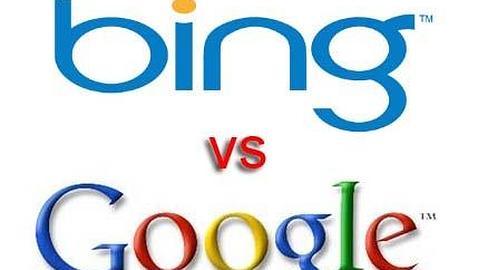Android is an open source operating system. Developers can access your code and create versions. That is true to the Android 3.0, Honeycomb, the first Google has created specifically thinking into tablets. Andy Rubin, the head of Android at Google, has ensured that this operating system is "an open source project, we have not changed their strategy." However, "to respect the timing of exit of tablets have made some concessions.
We have not thought about what would be needed to do to make the system work on the phones. We will add resources and slow down our schedule beyond what is reasonable." Rubin ensures that publish the source code when possible. Currently, Xoom Motorla tablet is equipped with Honeycomb. The reason that Google would want to avoid market fragmentation resulting in the smartphone, the ability to make versions of its operating system it entails, for example, that some manufacturers specifications unique request for applications on Android which is detrimental dissemination and annoying to the developers that they must create more of an adaptation of his application on Android.
Coinciding with this information, news emerged on the draft just leaving Motorola's Android operating system and create your own. Motorola since 2009 working with Google for its smartphones and tablets. The AmB would be based on the need to differentiate from other competitors who also work with Android and not rely on a single supplier.
Oracle and a French company have raised lawsuits against Google for alleged patent infringement Android what worries manufacturers who use the consequences of an eventual ruling against the company's operating system. Other companies like HP or Blackberry, have opted to develop its own operating system for tablets of the brand.
However, they never break bridges. Blackberry, for example, has announced that its tablet Playbook will have a reader application that will run Android with simple adjustment operation. Once adapted, the developer must receive approval from the BlackBerry application store. With this move, the company wants to take advantage of the offer of 200,000 applications that currently work with Android.



We have not thought about what would be needed to do to make the system work on the phones. We will add resources and slow down our schedule beyond what is reasonable." Rubin ensures that publish the source code when possible. Currently, Xoom Motorla tablet is equipped with Honeycomb. The reason that Google would want to avoid market fragmentation resulting in the smartphone, the ability to make versions of its operating system it entails, for example, that some manufacturers specifications unique request for applications on Android which is detrimental dissemination and annoying to the developers that they must create more of an adaptation of his application on Android.
Coinciding with this information, news emerged on the draft just leaving Motorola's Android operating system and create your own. Motorola since 2009 working with Google for its smartphones and tablets. The AmB would be based on the need to differentiate from other competitors who also work with Android and not rely on a single supplier.
Oracle and a French company have raised lawsuits against Google for alleged patent infringement Android what worries manufacturers who use the consequences of an eventual ruling against the company's operating system. Other companies like HP or Blackberry, have opted to develop its own operating system for tablets of the brand.
However, they never break bridges. Blackberry, for example, has announced that its tablet Playbook will have a reader application that will run Android with simple adjustment operation. Once adapted, the developer must receive approval from the BlackBerry application store. With this move, the company wants to take advantage of the offer of 200,000 applications that currently work with Android.



- Google Begins Testing Android In-App Billing - Full Launch Next Week (24/03/2011)
- Google shuts down access to Android 3.0 Honeycomb source (25/03/2011)
- Google Testing Android Market In-App Billing, To Launch Next Week (25/03/2011)
- Google Android 3.0 "Honeycomb": Open source no more (25/03/2011)
- Google to Delay Public Release of Next Android Version (24/03/2011)
Google (homepage) NASDAQ: GOOG (googlefinance) Google (blog) Google (GOOG) (wikinvest) Google (crunchbase) Google (wikipedia) Marissa Mayer at Stanford University (youtube) Android (homepage) Android (blog) Android (crunchbase) Android (operating system) (wikipedia) Android Demo (youtube) Androidology - Part 1 of 3 - Architecture Overview (youtube) Unboxing Acer Aspire One Android netbook (youtube)
No comments:
Post a Comment